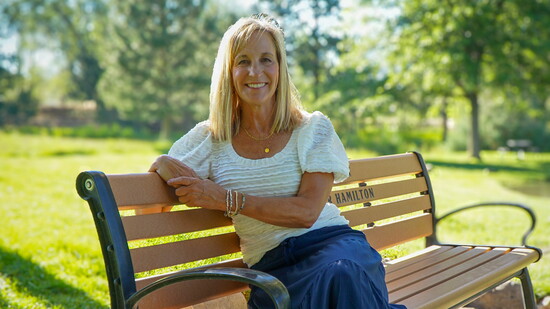Attention deficit hyperactivity disorder (ADHD) in the U.S. is on the rise. According to the Centers for Disease and Control and prevention (CDC), about 7 million or 11.4% of U.S. children, and 15.5 million adults were diagnosed with ADHD in 2022.
Christine Kaplan, MSW, is an ADHD and Anxiety Life Coach and former therapist who uses goal-focused strategies to help her clients with attention issues.
Q: What makes you passionate about helping those with ADHD?
A: Earlier in my career as a therapist working with teens, I saw a connection between how they felt about themselves and what they actually did out in the world. Two of my children have ADHD, and I saw them struggle, and how it affected our relationship.
I saw many creative and intelligent young people weren’t living up to their potential, so I got certified as a Life and ADHD Coach. The change in how my clients see themselves is inspiring. Their confidence is raised, they have strategies for achieving the things they want to do. They thrive. It’s rewarding to watch other people succeed.
Q: How does your life coaching work?
A: I see clients about three times a month, in addition to direct access. They learn self-awareness and strategies specific to their lives. Clients do not need an ADHD diagnosis. It’s more about the behaviors and mindset that they need help with.
Q: What are some techniques people who struggle with staying focused can try?
A: Staying away from our phones is challenging. Try setting a timer on your phone for 20 minutes and place it eight feet away from you. Then work on your task. After the timer goes off, take a little break.
When you’re overwhelmed, try five finger breathing – a bilateral stimulation technique that reduces cortisol. Hold one hand out, fingers spread. Use the other hand to trace each finger, breathing in as you go up and out as you go down. Make out-breaths twice as long as in-breaths.
Set yourself and your family up for success each week with a family meeting on Sunday nights to plan. Plot out appointments, then fill in the to-do list, day-by-day. You’ll be more likely to keep yourself accountable once it’s written down.
Q: A lot of people struggle with being addicted to social media. How do you help folks manage that?
A: That’s a tough one for all of us! One of the biggest things to do is set a time limit on the apps on your phone. When you reach it, you must intentionally choose to go back in. That disruption can help.
Taking breaks from social media, even for a couple of hours, can help open kids’ eyes to how much time those apps consume. Staying busy with other activities can help. Planning more time with friends, family, at the gym, on productive tasks, or a part-time job can help break mindless scrolling. Physical activity, especially outdoors, can help those with ADHD calm their minds and focus.
"I saw many creative and intelligent young people weren’t living up to their potential, so I got certified as a Life and ADHD Coach. The change in how my clients see themselves is inspiring."
